 |
| LOVE Park Photo captured by my iPad |
So last week I was tweeting and vlogging from #ADA2012 (American Diabetes Associations 72nd Scientific Sessions) in Philadelphia, PA from both the @accuchek_us account and my own and it was quite the awesome and interesting experience.
The exhibition space was huge and and there were thousands of people at the conference and the days were a good 14 hours. My blood sugars ran low 90% if the time and I found myself not having to bolus for most meals. Attending the sessions was work -Hard work. Ingesting the information being said and tweeting/ vlogging said information correctly out to the masses was intimidating because I knew that the information I was passing along to you was vital to your health ....and mine.
I sat in sessions and tweeted about things like gestational diabetes, depression and diabetes - does that ring a bell for anyone? Heart disease in women with diabetes being the perfect storm(so scary and incredibly sobering, ) and a symposium on Diabetes Self Management.
And while I learned a tremendous amount of information ( and did my best to tweet that information out to you,) and was very grateful to learn all that I did in those sessions. There was one voice that was lacking in ALL the oral presentations, sessions and symposiums: And that voice was the patient living with diabetes.
It was ironical to hear clinicians talk about diabetes and depression and diabetes self management and not hear a patient voice in regards to those subjects.
There were no patient quotes in the sessions I attended and there was no actual actual patient representation in discussions I sat in. And personally, I felt like we as patients were reduced to a number in the study instead of an actual person(s) living with diabetes.
Diabetes is one of the only diseases where the patient does the majority (something like 90%) of the actual work on a daily basis. So it would make sense that patients would be there to not only attend sessions, but sit on panels discussing patient issues.
I think that fact really hit home for me the last day of the conference.
And as I was sitting in the last symposium on the last day of the conference, I looked around the ballroom and realized that it was emptying out after each speaker because people had to catch planes, etc.
Also, the weather in Philly was downright torrential and Obama was landing at Philadelphia International so all sorts of things were impeding upon this last symposium.
And that was sad because it was a was a symposium called: Who Best Supports The Patient In Diabetes Self Management? And various studies about patients and various support systems were discussed.
The symposium was under attended because everyone was on their way home. The timing was disappointing to say the least.
The symposium was under attended because everyone was on their way home. The timing was disappointing to say the least.
Anyway, The last 15 minutes of the was dedicated to a study about CDEs, Peer Facilitators & Clinicians who called a group of PWDs on a weekly basis to support type 2s. The study group was divided into three sections, each section receiving a phone call from one of the above mention groups.
Honestly, it was frustrating to hear about a study on patient support when the clinician clearly didn’t understand the concept of patients supporting patients. I loved the weekly phone calls, but once I learned that the Peer Facilitators had to read to the patients they were mentoring from a script (since when is being a peer require a script ) and that the study was only for type 2s ( regardless of the type - we ALL need support) I was dumfounded clearly felt that there was a real disconnect.
I love CDEs and I love my Endo, but it is my diabetes friends who help 24X7 when I am deep in the diabetes trenches - or just having a bad day.
The study showed that those who received weekly phone calls form CDEs did better, followed by the group who received phone calls from Peer Facilitators, followed by the group that was called by diabetes healthcare providers.
Look, it’s not a race, we need a three tiered patient support system, but the fact the the DOC wasn’t mentioned and that the Peer Facilitators had to follow a script left a huge gap in the study - At least as far as I was concerned.
And the end of the Doctors talk I was standing by the mic and got ready to speak. And when it was my turn I talked fast because I was afraid of people rushing out to catch their planes/trains and or automobiles and said something like this:
SIDEBAR: I feel funny writing about what I said - But I was the only DOCer besides @hopewarshaw in the room (and I was so glad she was!) and I wanted to let clinicians know that the DOC existed!
SIDEBAR: I feel funny writing about what I said - But I was the only DOCer besides @hopewarshaw in the room (and I was so glad she was!) and I wanted to let clinicians know that the DOC existed!
Hi, my name is Kelly Kunik and on Halloween I will be celebrating my 35th year of living with diabetes. People clapped.
I’m a Diabetes Blogger and I’m a member of the Diabetes On-Line Community. Look, we love and need you guys - You’re our Diabetes Pit Crew and without you we couldn’t live a healthy life. But with that being said, diabetes is one of the only diseases where the day to day diabetes is care is in the actual hands of the patient and I feel the study lacked in the peer support area. There’s Diabetes Peer Support going on 24X7 in the Diabetes On- Line Community.
Thousands and thousands of people living with, or affected by diabetes participate 24 X7. We read and find support in diabetes blogs, some of us write them and all of us find support through diabetes blogs and diabetes on-communities like Tu Diabetes. And we all support one another without a script.
Patients and Clinicians need to work TOGETHER and regardless of the diabetes type.
I know type 1, type 1.5 and type 2s who have no idea what a Certified Diabetes Educator is, but have found out through the DOC.
It’s such a shame that your study didn’t include the DOC or at least consulted with members of the DOC. Patient peers don’t follow a script - we just talk honestly about living with diabetes.
And I really wish your study had included that.
And then there was some clapping.
And then after talking with some folks out in the hall, I gathered my things and prepared for the trip home.
But here’s the thing - I wish I didn’t have to say what I said. I wish that the clinicians who conducted the study had already known about the diabetes on-line community. Because if they had, all the patients in the three groups studied would have found love and support and understanding long after the study concluded.
And as I drove home in a downpour so fierce I could barely see the road in front of me - I kept thinking about the patients in that study - And I really hope they find their way to the Diabetes On-Line Community.
And I really hope next year that more people living with diabetes will be able to attend ADA because what was being said in all the sessions directly affects our health - And knowledge is both powerful and empowering - And those are wonderful things when it comes to living life - And living a life with diabetes.
And I really hope next year that more people living with diabetes will be able to attend ADA because what was being said in all the sessions directly affects our health - And knowledge is both powerful and empowering - And those are wonderful things when it comes to living life - And living a life with diabetes.
#####
Accu-chek paid for my expenses and my attendee fee and they also paid me an honorarium for my time - And I appreciate that very much. But here's the thing: All tweets, blog and vlog posts are my very own thoughts and come from my very own brain - No one else's. Nobody edited my tweets, vlogs or posts regarding The American Diabetes Association's 72nd Scientific Sessions except for me.

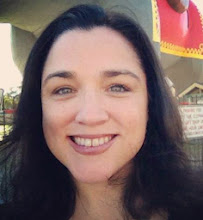



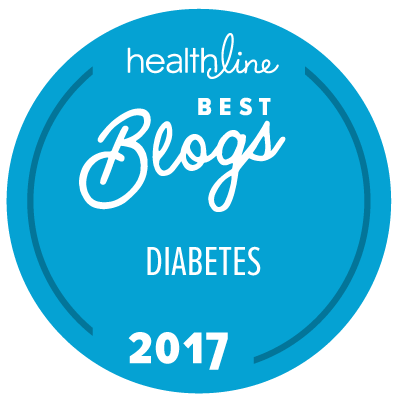
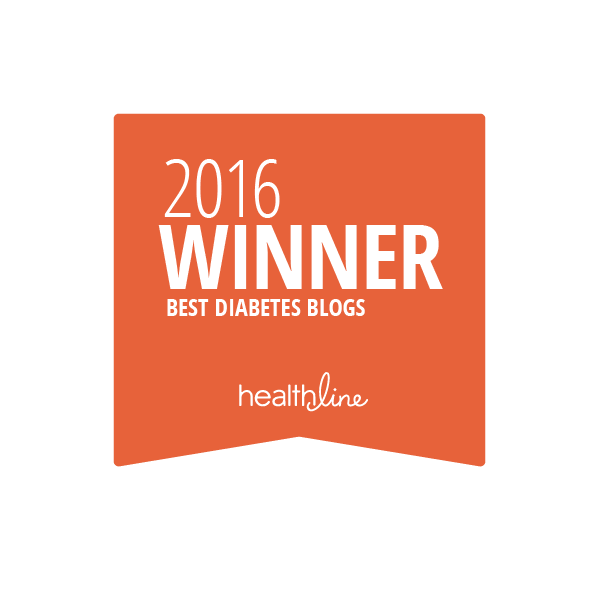
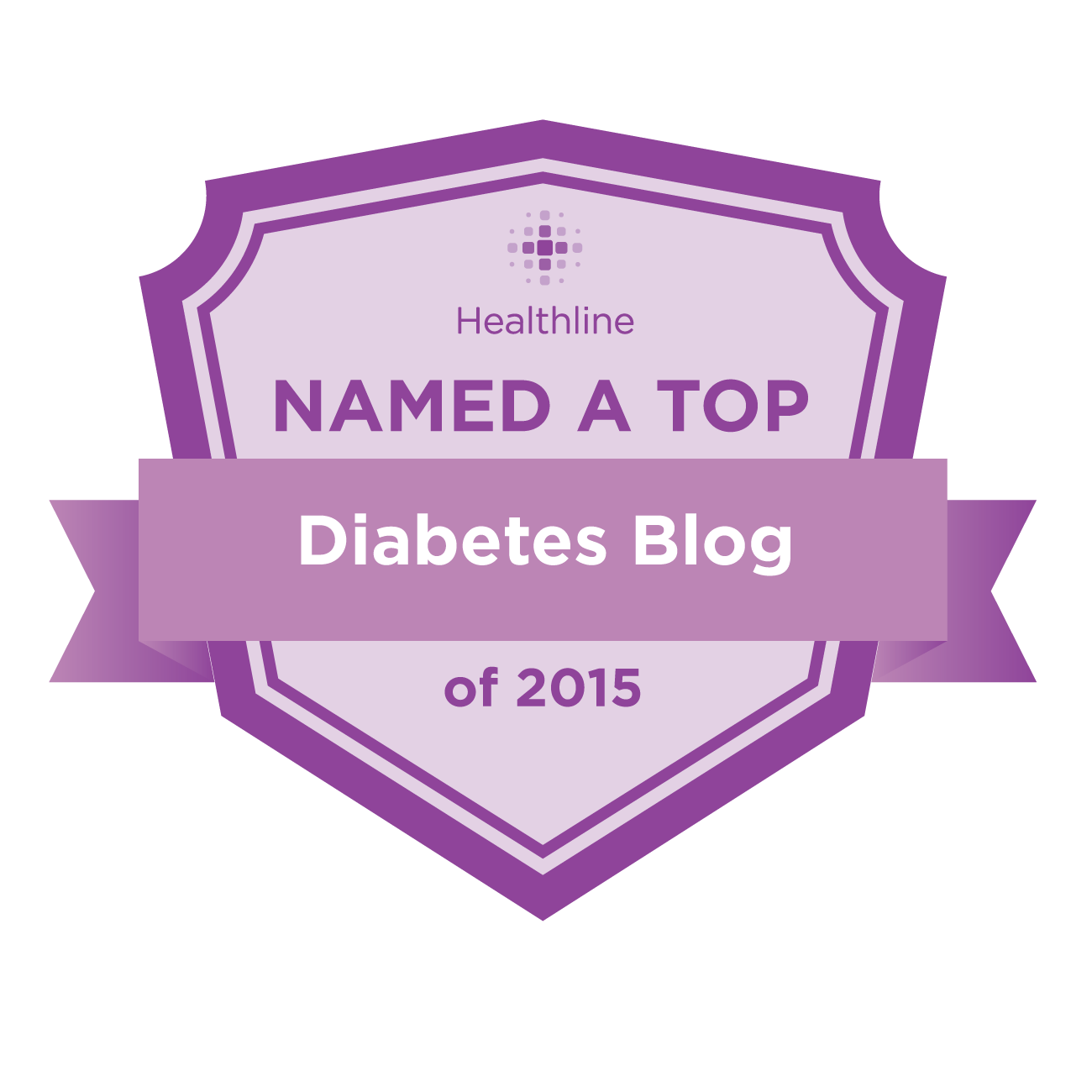












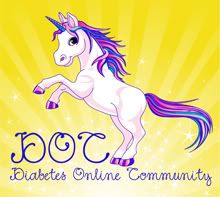








11 comments:
I'm giving you a symbolic applause for your speech as well. It sure does sound like a certain collective voice was lacking from the conference.
That said, I had a discussion with some folks on Twitter that evolved into a discussion on whether ADA was really appropriate for patients, or if its too technical and business-oriented for patients. I'm curious to hear your thoughts on this.
I think even science and medical professionals should realized the emotional need for one on one support from other people living with diabetes. It's a concept that's new to them and they are slow to catch on. But I'm glad there are people out there like you, Kelly, who are bringing the D-OC to their attention.
Thanks! :)
Bravo and Amen, sister! I would have given you a standing O if I had been there. Oh yeah, that's right, I wasn't there, at an ADA conference in my home town, because the expense is out of reach for most folks living with D, and their caregivers.
Thank you for going. Thank you for standing up and saying what we all wish we had been there to say.
YAY! Thank you for speaking up. I'm applauding you as well.
Kelly,
Thanks for writing this and for being so eloquent at the microphone.
As I was reading this, I was reminded of an article Wil Dubois wrote last fall over at Diabetes Mine
An Inside Look at Depression Training for Diabetes Educators
Very much as Cara said, the emotional and mental aspects of diabetes have been so often overlooked, minimized, ignored. It's not an easily "quantifiable" topic and it's one that can take one hell of a long time to "feel" results from.
No one has a bigger stake in our diabetes care than we do. The science is important, no denying that. However, how that science is helping patients is just as important, if not more so, because we're the ones that take all that science out the door and actually make it work. And who better to tell that story than us?
Let us help, we want to
Kelly... well put. I really like what you said about a three-tiered support system. All three on equal footing. I can understand that the focus was scientific, but at this point, doesn't patient to patient support factor into the equation? Thanks for the post.
Standing-O here!
It's a shame, for sure, that people who deal with PWD on a daily basis are out of touch and don't even know about the biggest support group there is!!
Thanks for being 'our' voice!!
Bravo, Kelly! I wish I'd known you were in there! I ended up leaving just before that to start heading to the airport... would have LOVED to hear you say that, and get word out about it then and there. Oh well. Nicely done, my friend. I do think that the medical profession needs to hear from us, even AT these conferences, so that the disconnect can be addressed. Thanks for what you do, k2!
Kelly, just by being there and saying what you did will bring awareness. Think about the change the DOC affected when they attended the JDRF Gov day in 2011. People are still talking about that. It is great you went and keep doing what you do. I will too. DC twice in the last 8 weeks. Lots to do in the fall. Call in the MODs if you need us! Michelle
I've seen the same thing time an again. I attended a presentation by a leading Canadian researcher and endocrinologist. She presented our support team to a room full of patients. Not one of her slides mentioned peers and she never even hinted at the possibility.
i believe there's a prevailing belief that because we are not trained clintians, that even acknowledging us let alone supporting peer advice, is medically negligent. It's like they are all covering their asses against litigation in case one of us givbes bad advice and then somebody sues them.
It will take a broad effort to change their way of thinking.
Without the DOC I would not be managing or handling my diabetes the way I do. I owe them a lot! I'm part of a UK Student group of D's and we hope to get much bigger and recognised as a bit of a niche DOC. There is so much importance behind everything you have said and I hope that one day we will get somewhere!
Post a Comment